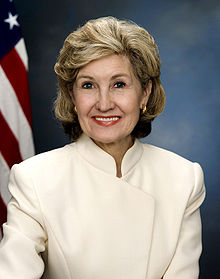 Senate Communications Subcommittee chairman John Kerry is asking his colleagues to vote against the Congressional Review Act resolution to nullify the FCC?s network neutrality rules (pdf), which could get a vote on the Senate floor next week.
Senate Communications Subcommittee chairman John Kerry is asking his colleagues to vote against the Congressional Review Act resolution to nullify the FCC?s network neutrality rules (pdf), which could get a vote on the Senate floor next week.
It has already passed the Republican-controlled House, but the Democrat-controlled Senate is resistant.
The FCC?s rules for internet openness are scheduled to go into effect Nov. 21, but they have been challenged in court by phone company Verizon and public interest groups such as Free Press ? the latter because the rules were not extended to wireless broadband.
The FCC?s net-neutrality rules prevent Internet service providers from slowing down or speeding up access to websites. Wireless carriers are banned from blocking lawful websites or applications that compete with their services.
But applications that offer wireless hotspots on phones, for example, are routinely blocked by wireless carriers ? unless consumers pay carriers additional fees for access to the same bucket of MBs.
?As the leading trade association for the wireless communications industry, CTIA also has a significant interest in defending the FCC?s decision not to impose additional regulatory burdens on mobile broadband providers,? the CTIA said in its filing.
In Kerry?s opinion, the FCC ?not only has the authority to protect the Open Internet, but the responsibility to do so.?
 Sen. Kay Bailey Hutchison (R-Tex.) has been pushing the nullification resolution, and indicated earlier this week she had the support to at least bring it to a vote on the floor. ?The Internet is not broken and does not need fixing,? Hutchison told an audience at The Heritage Foundation.
Sen. Kay Bailey Hutchison (R-Tex.) has been pushing the nullification resolution, and indicated earlier this week she had the support to at least bring it to a vote on the floor. ?The Internet is not broken and does not need fixing,? Hutchison told an audience at The Heritage Foundation.
According to The Daily Caller, Senator Hutchison said:
?We are hoping that next week we will be able to get the Resolution of Disapproval on the floor. We have over 40 signatures to have the expedited Congressional authority to take this resolution up, and the House has already passed it. It now rests in the Senate.?
In other legislative news, U.S. Senators Ron Wyden (D-Oregon) and Mark Kirk (R-Ill.) are sponsoring the Geolocation Privacy and Surveillance Act which provides legal clarity for the use of electronically-obtained location data.
The GPS Act was introduced in June by Wyden and Representative Jason Chaffetz (R-Utah). It will give law enforcement and the telecommunications industry the rules needed for how data compiled by the newest technologies can be used and promulgated.
Roger Easton, the man who designed and invented the Global Positioning System (GPS), has formally asked the Supreme Court to consider his amicus curiae (friend of the court) opinion in the United States v. Jones case. Easton wants the Supreme Court to take a closer look at how GPS tracking technology works and act to protect the Fourth Amendment rights of Americans.
The New York Times has called the upcoming US v. Jones case ?the most important Fourth Amendment case in a decade.?
The Jones case will set the precedent for the legality and limitations of GPS tracking without a warrant. The courts will address a question that has divided the lower courts: Do the police need a warrant to attach a GPS device to a suspect?s car and track its movements for weeks at a time?
Source: http://www.dailywireless.org/2011/11/07/communications-law-net-neutrality-surveillence/
catherine the great dark shadows ted haggard ted haggard neutrino carly fiorina girl with the dragon tattoo trailer
No comments:
Post a Comment